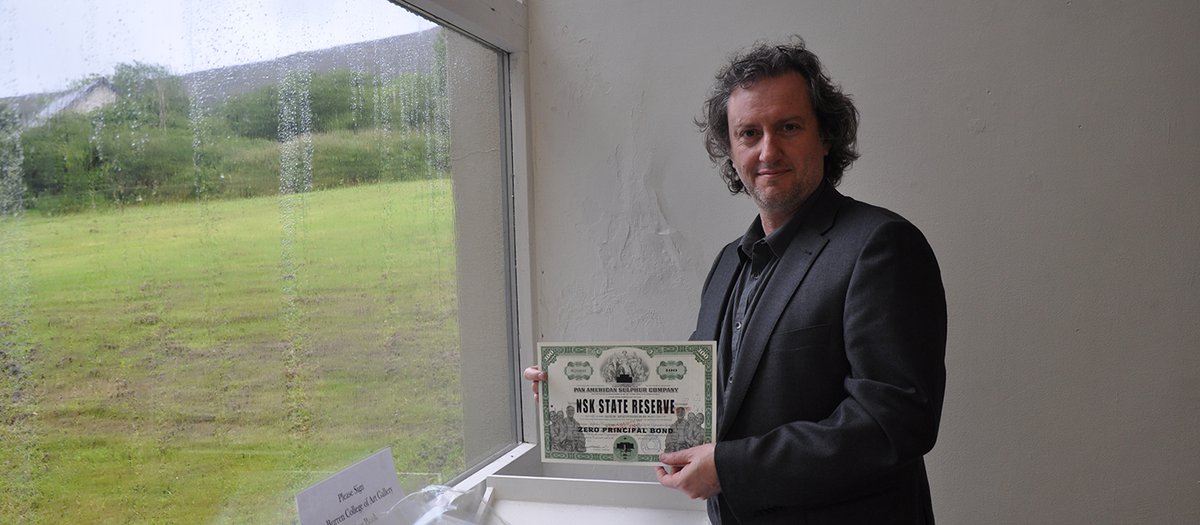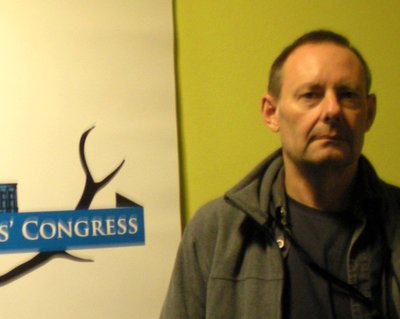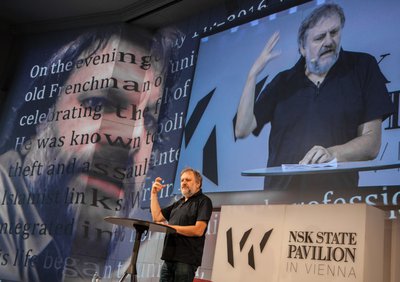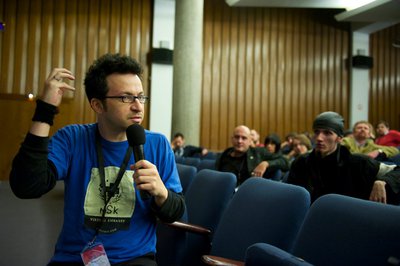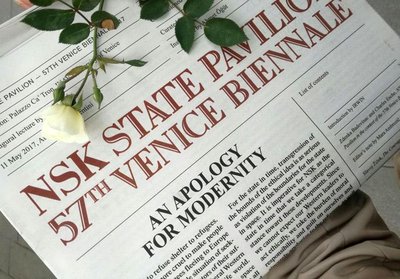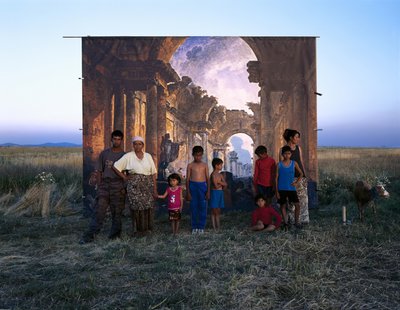Apology for Modernity, A Measured Dissent
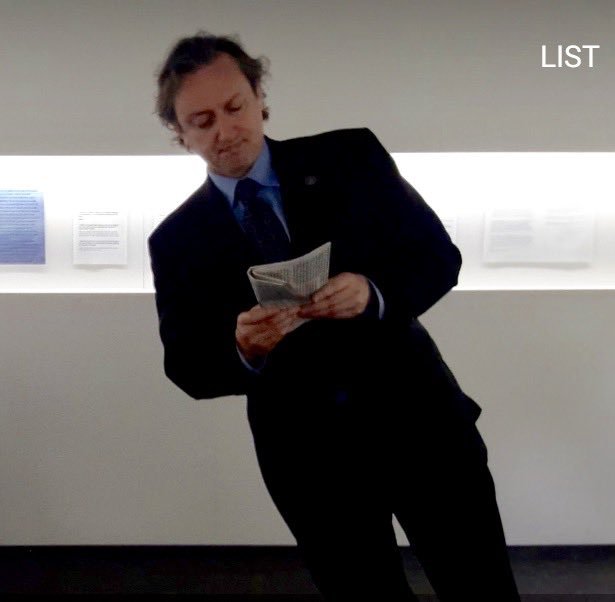
 Charles Lewis at the NSK State Pavilion
Charles Lewis at the NSK State Pavilion
The opportunity to engage with the State through our citizenship is always exciting, and doubly so when the instigators of the action are the members of Irwin, one of the collectives responsible for the creation of the NSK State itself. In what might be their first state-wide call-up since the Congress in 2010, Irwin is now soliciting a straight up or down vote on Apology for Modernity, the central document to their NSK State Pavilion in Venice this year. Through this statement and the actions and lectures of the Pavilion the members of Irwin seek to recognize the failings of Modernism as they have affected non-Western states where citizens have been forced to leave and seek refuge, often in the West itself where the offense is doubled by their treatment on arrival.
In the first place, it is unusual for the NSK State to take an explicit stance on a political issue of our time. While NSK works often have a political component, it is typically through appropriation to create a bank-shot commentary on the emptiness of the tools of that trade in the face of their human cost. The NSK State itself is a statement of this sort, embracing the contradiction of a Universal State, a contradiction at least as states are arranged today. In this respect, we might ask if it is ‘acceptable’ for the NSK State to take such a direct stance. We might ask, but it becomes immediately apparent by the restrictiveness of its alternative, that it must be. We cannot wish our state or our citizens to remain politically sterile. We should also recognize that in this case the topic at hand, the flow of human beings between territorial states, is clearly in-bounds and relevant to the non-territorial NSK State itself.
In the second place, we might quibble over the application of ‘Modernity’. Modernity, and its Solutions, is always vulnerable to criticism of its grand failures. This does not so much disqualify these criticisms as defuse them as long-known, and something that is continuously evaluated as part of the grand tension between big ideas and how those big ideas actually play out. This title establishes a connection to this traditional tension and we must have faith that it will be explored in an interesting way.
Which gets us where we would like to be: the content of the Apology itself. Here, we find the basis of this statement, that the plight of refugees (and others) is a result of geopolitical ambitions of ‘the West’. If someone wishes to discuss the forces involved more precisely, I leave it to them to do so: accepting full blame for the state of Afghanistan on behalf of ‘the West’ strikes me as a gross oversimplification. We may still proceed by granting that whatever the extent of the culpability, western democracies have certainly played a hand. At the core of this statement however, beyond culpability, is a plea to recognize the basic humanity of the people affected. This much is easy to agree with, and dissenters on this point may want to question the purpose of their citizenship. The radical acceptance by the NSK State in Time of all applicants is one of its defining characteristics, it is a call for recognition of our innate humanity regardless of territorial state. Paradoxically, it is this universality which makes me question the NSK State’s standing to issue an apology for Modernity as an apology from the West, as it is formulated here.
Several times in the Apology, Irwin references “we” in the West (We, the liberal Western world, our Western leaders, etc). Particularly in the context of the NSK collective, which often sought new ground outside of the East/West divide, this is jarring. In the context of the NSK State which, famously, includes thousands of Nigerian citizens, it seems badly misplaced. Does solidarity between citizens mean our non-Western citizens will have the opportunity to enjoy and share in the guilt of our Western ones? Do we not have citizens who are themselves caught up in this crisis as refugees? Are they both enactor and sufferer of this condition? In its way, such a dual condition would speak more poetically and directly to the self-inflicted ills of the modern state, where democracy co-exists with rank populism, and where monied interests contend with and often trump human rights. That the human heart is split in twain between good and evil (to paraphrase Solzhenitsyn) is a core lesson of NSK and might have been fruitfully demonstrated with such a conceit.
There are other ways to interpret this Apology if we cannot accept the Western tilt of it. One is to simply accept it as a statement from Irwin. Where there is still some oddness to these Slovenians, the editors and instigators of the East Art Map, addressing themselves as Western, the inclusion of Slovenia in the EU has made them culpable in the sense that they indicate, as citizens of a Western democracy. In this sense, they follow in the footsteps of primordial Laibach and NSK works which accept greater responsibility for the ills of the State (though not specifically Western ones at that time) in order to out these demons. Viewed in this way, the Apology utilizes the NSK State as a platform for their view. It is, moreover, an enriching utilization of the State, expressed in such a way as to flesh out the ethical implications of the State and bring fresh relevance to it.
The Apology asks us to make a binary decision, which is fair here, in choosing a direction where there is no excluded middle. This letter should be considered as a lengthy caveat to my binary choice, to my vote of disagreement with the statement. While I find the message of the Apology as summarized in the closing paragraph not only an appropriate mission for the NSK State, but one for which it is particularly suited, the Apology’s grounding in a Western identity for the NSK State, and the raft of crimes it asks that identity to carry alone, is not something I can sign off on.
Vote: no, I don’t agree with this statement
